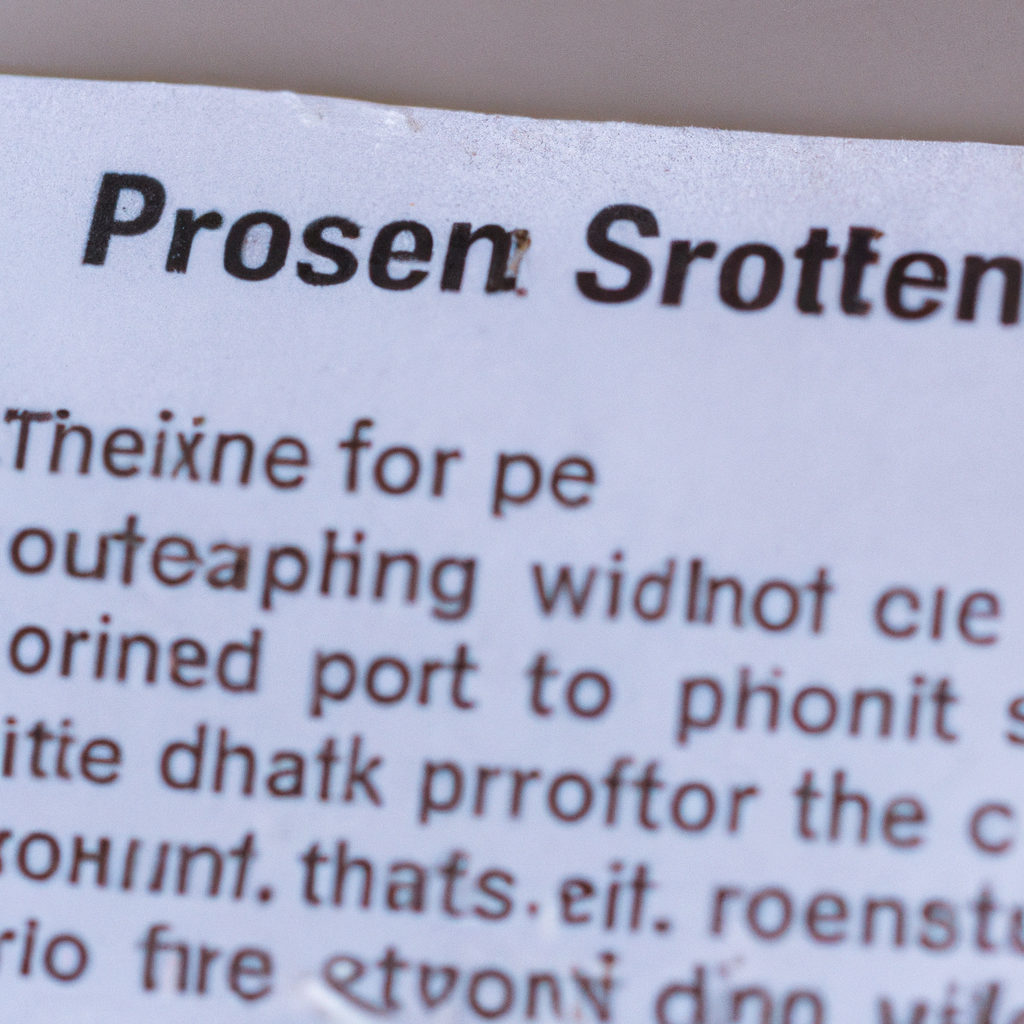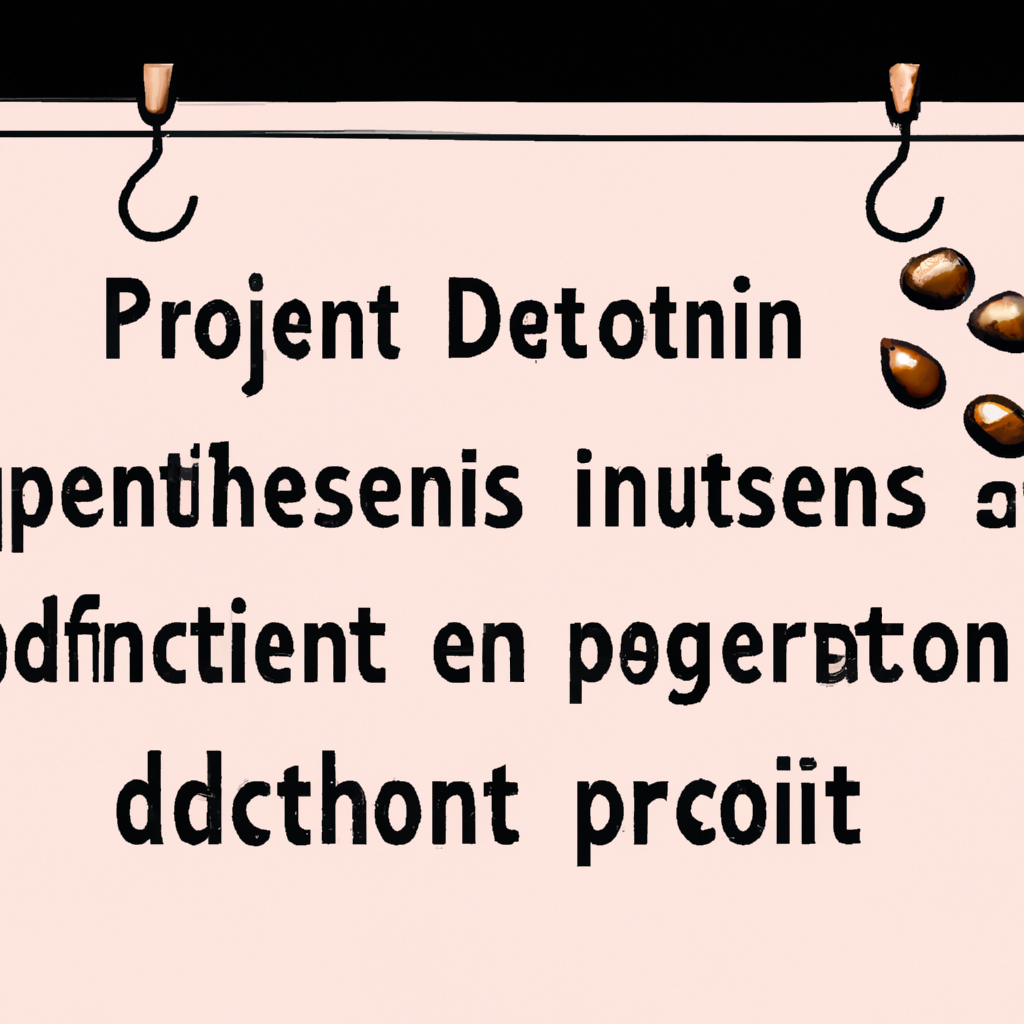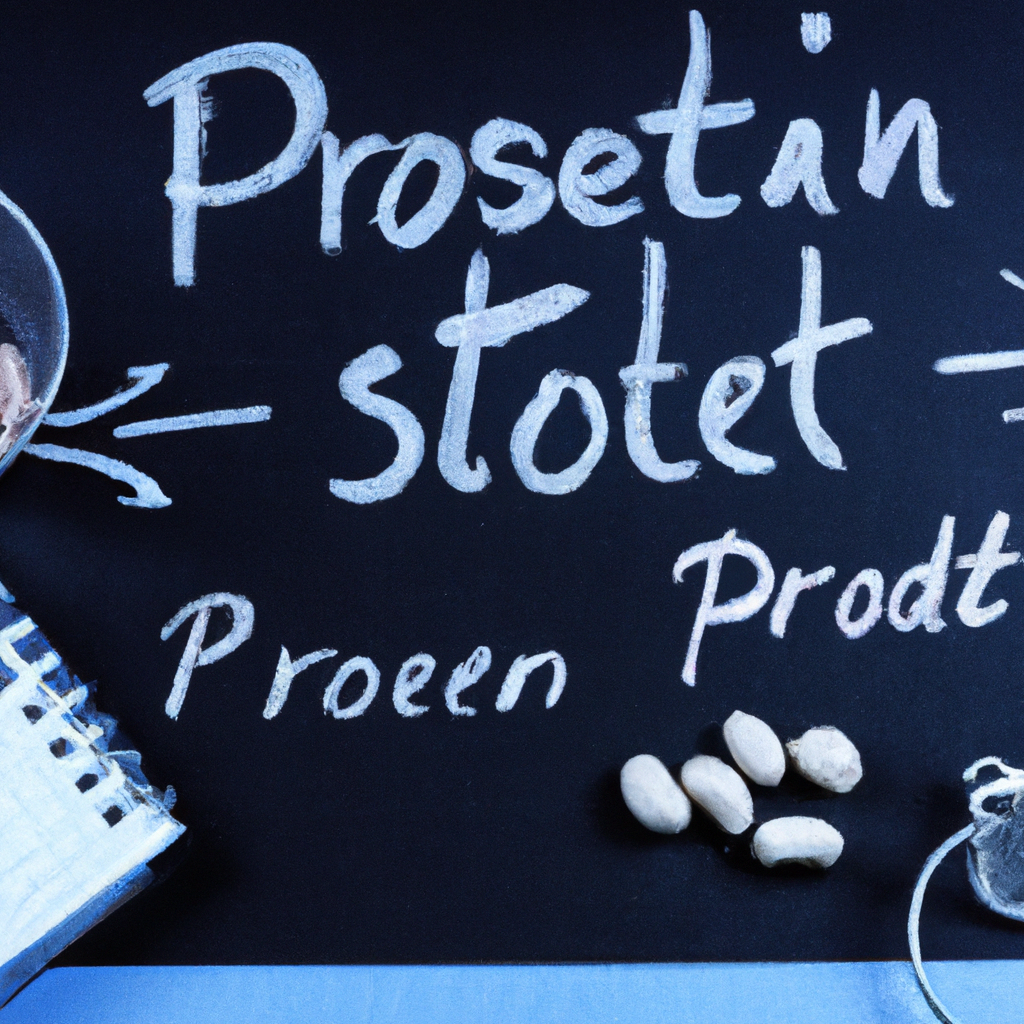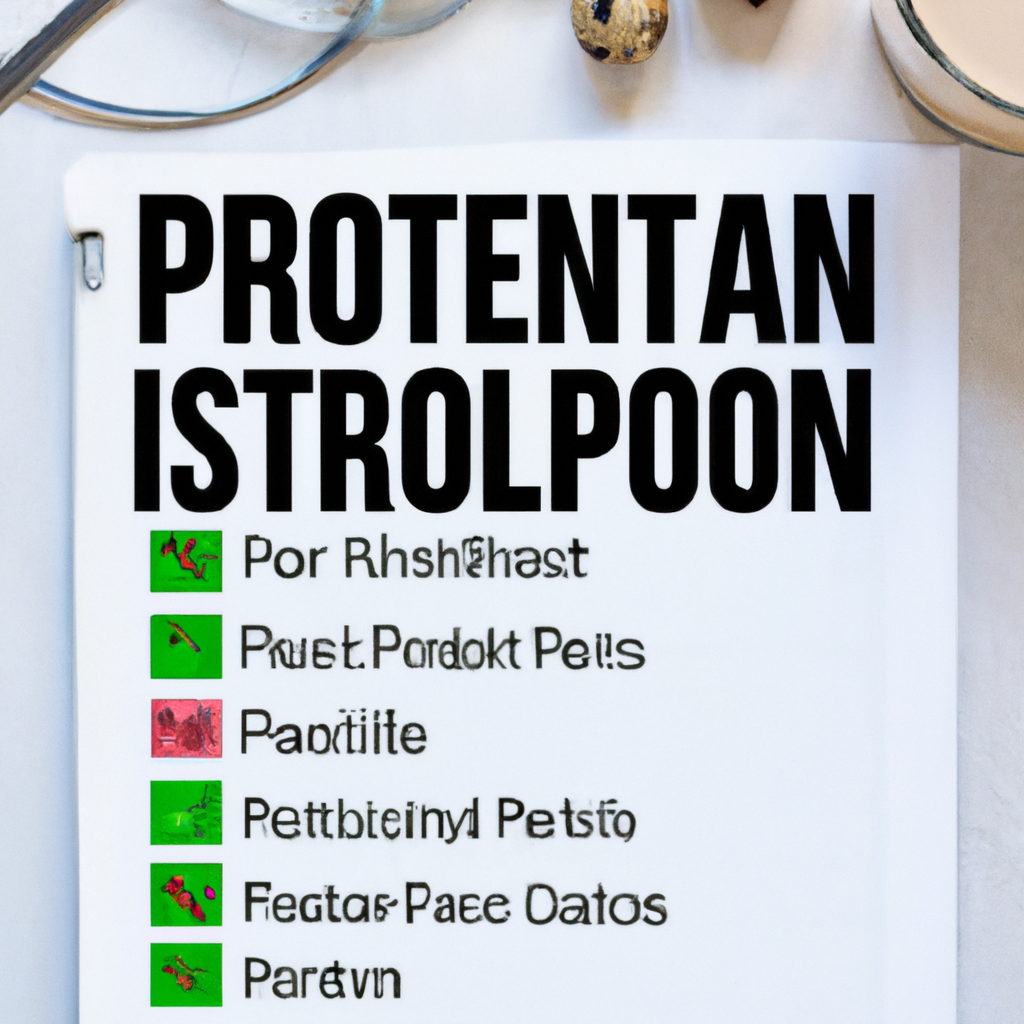In the culinary world, amid swirls of aromatic sauces, the chopping’s rhythmic trance, and the sizzle of a perfectly seared steak, little thought is often given to the humble protein powder. Is it a lab-born imposter, simply masquerading as food, or may it ascend to the pantheon of ingredients worthy of our heated pans? More pertinently, does inviting it to the dance of fire and metal denature its structure, stripping it of its nutritional prowess? In this scintillating tête-à-tête, we’ll explore the fascinating chemistry of cooking with protein powder. Prepare to sharpen your kitchen knowledge as we unravel this protein-packed riddle in the pursuit of dietary excellence.
Table of Contents
- Understanding Protein Powder: Composition and Uses
- Debunking Myths: The Science of Protein Denaturation
- Unveiling the Truth: Does Cooking Protein Powder Denature It?
- The Aftermath: How Denatured Protein Affects Your Health
- Culinary Experiments: Best Ways to Incorporate Protein Powder in Your Diet
- Striking the Balance: Dos and Don’ts When Cooking with Protein Powder
- Your Proteins, Your Health: Tips for Optimal Protein Consumption
- Q&A
- Wrapping Up
Understanding Protein Powder: Composition and Uses
When you navigate the vast world of sport nutrition, protein powder is an unavoidable destination. Composed primarily of protein extracted from various food sources like milk (whey and casein proteins), eggs, or plants (hemp, pea, or rice proteins), these nutritional supplements are structured to aid the building and repairing of muscle tissue in your body. The protein component in these powders are usually complemented with a variety of other ingredients including vitamins, minerals, added sugars, or preservatives. The nutritional composition of protein powders, therefore, can vary dramatically based on the type of protein, the source and other additives.
The quick and convenient protein boost provided by these supplements has led to its widespread use across a diverse demographic. For athletes and fitness enthusiasts, protein powders serve as a post-workout recovery aid, helping to rebuild the muscle tissue that gets broken down during intense physical activity. These supplements may also be used by individuals looking to increase their overall protein intake, for example, vegetarians or those on weight management plans. It’s noteworthy that while these powders can form part of a balanced diet, they are not intended to replace whole foods but rather supplement protein intake where required. Always remember, it’s important to seek professional advice before embarking on a dietary journey that involves any supplements.
- Protein powder is primarily composed of protein extracted from various food sources.
- These supplements are used by athletes for muscle recovery, or by individuals looking to increase their protein intake.
Protein powder is not a magic solution but can be a handy tool in your nutritional toolkit when used judiciously and in conjunction with a balanced diet and a healthy lifestyle.
Debunking Myths: The Science of Protein Denaturation
Are you fatigued from the whirlwind of misinformation about protein denaturation? It’s time to set the record straight with the help of science. Across many fitness and dieting forums, you’ll find an array of hearsay relating to proteins and the process of denaturation – some true, but many misleading. Often, it’s branded as detrimental, even harmful; however, the truth is inherently more complex yet fascinating.
Firstly, let’s delve into what protein denaturation entails. Defined, it occurs when the proteins are subjected to external stress like change in pH, temperature, or exposure to chemicals, thereby altering their natural structure. Often, these conditions interfere with the weak bonds holding the protein’s structure, causing them to unravel and lose their functional shape. This, in essence, is denaturation.
Now, let’s debunk some common myths surrounding protein denaturation:
- Myth 1: “Denatured Proteins are bad for you.” On the contrary, denaturation is beneficial in some cases. For example, our stomachs naturally denature proteins as part of the digestion process.
- Myth 2: “If you cook your proteins, you ‘destroy’ them.” The fact is, when you cook proteins (like eggs or meat), you denature them, making them easier to digest.
- Myth 3: “Supplements with denatured proteins are ineffective.” Incorrect, as the body can still process and utilize these proteins.
Understanding the science behind these processes enables us to make informed dietary decisions and differentiate fact from fiction. Thus, it’s essential to remember that not all protein denaturation is harmful - it’s a natural and necessary process.
Unveiling the Truth: Does Cooking Protein Powder Denature It?
Believe it or not, the topic of whether cooking protein powder denatures it has become a hotly debated issue within the fitness and nutrition communities. The truth of the matter? Like with so many other aspects of nutrition, there’s no clear yes or no answer. Instead, what happens when you cook protein powder largely depends on factors such as the type of protein, the specific brand and the method of cooking you’re using.
We know that heat can denature proteins, essentially damaging their structure and potentially affecting how effectively your body can use them. This process occurs in all types of protein, including the ones we consume in our diet.
- Whey protein, for instance, is notoriously sensitive to heat, and studies have shown that it can lose up to 50% of its antioxidants properties when exposed to high temperatures.
- On the flip side, though, heating soy protein has been found to make it more easily digestible and increase its antioxidant capacity.
Thus, the overall impact of cooking on protein powder is largely contingent on what the powder is made from. Nevertheless, whether or not this matters to you as a consumer is a completely personal decision.
The Aftermath: How Denatured Protein Affects Your Health
First and foremost, it is essential to comprehend the destructive implications of denatured protein on biological functions. When a protein gets denatured, it loses its original properties; its folded structure unfolds, turning it into an irregular, unproductive shape. While these structurally altered proteins can be found in everyday foods like cooked eggs and meat, their overconsumption might result in toxic buildup.
- One prime concern is that animal bodies, including those of humans, struggle to recognize and process these transformed proteins efficiently, causing them to accumulate within the body and potentially leading to harmful health effects over time.
- If your diet contains an excessive amount of denatured protein, your body may succumb to unnecessary stress to metabolize these complex structures, this could lead to various health problems like kidney overload, digestive issues, and more.
- An excess of these denatured proteins may also trigger an immune response, causing inflammation and potentially leading to chronic illnesses if left unchecked.
- Last, they could hamper nutrient absorption. While proteins are admired for their nutrient content, studies show that denatured proteins can block essential vitamins and minerals absorption, thus leading to nutrient deficiencies.
It must be noted, not all denatured proteins cause havoc in our bodies. For instance, the process of cooking can denature proteins in meat to make it digestible and safe from harmful bacteria. Similarly, pasteurizing milk denatures its harmful proteins without hampering nutritional content.
- The problem arises when denatured proteins are consumed in large quantities, especially through processed, burnt, or heavily cooked foods.
- To control levels of denatured protein, it’s advisable to balance with proteins in their natural state, for example, through raw fruits, vegetables, nuts, and seeds.
- Incorporate regular physical activity into your daily routine, and ensure adequate fluid intake to help your body process proteins efficiently.
In conclusion, while protein holds a vital role in our bodies, over-reliance on denatured proteins from cooked or processed foods could lead to health complications. Keep your protein intake balanced and strive towards a healthier lifestyle wherever possible.
Culinary Experiments: Best Ways to Incorporate Protein Powder in Your Diet
Transform your meals with a scoop of protein powder. No longer limited to post-workout shakes, protein powder’s versatility can be fun to play with and it’s a fantastic way to amp up your daily protein intake. Whether you’re a fitness enthusiast looking to build muscle, or someone simply aiming for a more balanced diet, integrating protein powder into your diverse dishes will significantly boost their nutritional value. Below, we will share some surprising and delectable ways to creatively incorporate protein powder in your daily routine.
To start with, the breakfast table offers a wide range of possibilities and the answer is not just “adding it to your smoothie”. You could give your morning pancakes a healthy upgrade by mixing some protein powder into your batter. Adding a scoop to your coffee or tea can offer an interesting twist many wouldn’t think of – it not only enhances the flavor and thickness but also keeps you fuller longer. Breakfast muffins or oatmeal are other traditional meals that can benefit from a protein infusion.
For those with a sweet tooth, why not venture into protein packed desserts? A scoop of your favorite protein powder can easily be intermixed with ingredients for cookie dough or brownie mix, paving the way for guilt-free indulgence. And, instead of topping your fruit salad with cream, sprinkle it with flavored protein powder. You can also add some into your homemade gelato, yogurt or even pudding for an extra creamy and nutritious treat!
Experimenting with protein powder in soups, stews, and salads can also yield delightful results. One could blend protein powder with their preferred salad dressing or mix it directly into hearty, savory broths. You may also try incorporating protein powder in your hummus or myriad types of dips and sauces. Notably, protein-enriched bread, pizzas and pastas are gradually gaining popularity.
Remember, the key to culinary experiments lies in your willingness to explore, invent, and reinvent. In this journey, your blender will be your best friend, able to disguise your protein powder within your favorite dishes wholeheartedly. Captivate your palate, nourish your body, and have fun experimenting with this nutritional powerhouse.
Striking the Balance: Dos and Don’ts When Cooking with Protein Powder
Incorporating protein powder into your recipes can be a great way to boost your daily protein intake, particularly if you’re following a high-protein diet. However, understanding the correct ways to use this powerful supplement in cooking can be tricky. The key is to strike a balance, ensuring the protein isn’t denatured, while also making sure your dish tastes divine.
Do:
- Use protein powder in baked goods: Try incorporating it into your favorite recipes for pancakes, muffins, or brownies. The heat from baking won’t significantly denature the protein.
- Properly mix your protein: Ensure the protein powder is thoroughly combined with the other ingredients to prevent powdery or gritty textures in your finished product.
- Experiment with flavors: Protein powders come in various flavors. Use this to your advantage to add an extra kick to your dishes.
Don’t:
- Overheat your protein powder: Excessive heat can denature the protein, reducing its nutritional benefits. Avoid using it in high-heat cooking methods like frying or broiling.
- Add too much: A common mistake is to use excessively large amounts of protein powder, which may overpower the taste of your food. Moderation is key.
- Limit yourself to shakes: Even though protein shakes are popular, break the mold and use it in other creative ways such as mixing it in yogurt or oatmeal.
Ultimately, the trick to effectively cooking with protein powder lies in understanding its characteristics and learning how to work with it to create beautifully balanced dishes that are both healthy and delicious.
Your Proteins, Your Health: Tips for Optimal Protein Consumption
Proteins, often hailed as the building blocks of life, play a critical role in healthy living. They help in repairing body tissues, make enzymes and hormones, and are essential for bone, muscle, cartilage, skin, and blood health. But this doesn’t mean you should overstock on protein: finding that sweet balance is key - too little can compromise your health, but too much can have its own adverse effects.
So, how can you optimize your protein consumption? Here are a few tips:
- Know your individual protein requirements: The quantity of protein each person needs depends on various factors including age, gender, and physical activity level. Average adult men and women should aim for around 56g and 46g of protein per day, respectively. Those who lead an active lifestyle may require more.
- Embrace variety: Diversifying your protein sources ensures you are also getting a mix of other essential nutrients. Include both animal-based proteins (like lean meat, fish, eggs, and dairy) as well as plant-based proteins (such as beans, lentils, and whole grains) in your diet.
- Time your protein intake: Spread your protein intake throughout the day. Consuming protein in every meal can help maintain muscle strength, especially in old age.
- Choose quality over quantity: It’s not just about the amount of protein in your diet, but the quality too. Proteins from whole food sources are generally healthier than processed protein foods which can be high in saturated fats and salt.
Incorporate these tips into your daily routine and you’re on your way to an improved, protein-packed diet that fuels your body with the right nutrients! Remember, it’s all about maintaining a healthy life, and your protein consumption plays a pivotal role.
Q&A
Q: Jumping in headfirst, what is denaturation of protein powder?
A: Denaturation of protein powder refers to the breaking down of protein structure due to heat, acid or other outside factors. This process may change the protein’s function and properties.
Q: So, can cooking in fact denature my all-time favorite protein powder?
A: Yes, cooking protein powder can lead to denaturation. Heat has a significant effect on protein structure and can cause it to break down.
Q: This sounds pretty intense. Should I be worried about denaturing my protein powder when I cook it?
A: While denatured proteins still provide nutritional benefits, they might not function exactly as you would expect in their original, undenatured state. However, our bodies are used to denaturing proteins during digestion anyway.
Q: What happens to my protein shakes when I toss in some warm oats? Is it even worth it?
A: When you mix something hot with your protein powder, some amount of denaturation is likely to happen. But don’t fret! The impact on the overall protein content is usually minimal. Your protein shake is still a nutrient-rich powerhouse!
Q: Alright, so baking my protein powder is going to denature it. But taste-wise, does it make any difference?
A: Great question! Some people claim that cooking protein powder can slightly alter its taste due to the denaturation process, but opinions differ. Some even love the slightly changed texture and taste.
Q: What alternatives might I explore if I want to avoid denaturing my protein?
A: You might want to add your protein powder to recipes after the cooking process, like sprinkling it over your pancakes or stirring it into your post-cooking oats. This way, you can maintain the protein structure.
Q: Final query, is denatured protein still good for my muscle growth?
A: Absolutely. Even if protein powder is denatured, it can still contribute to muscle protein synthesis. That means it can help fuel your muscles and aid recovery.
Q: If cooking denatures protein powder, can it also affect other supplements?
A: Similar to protein powder, other heat-sensitive supplements might also be affected by cooking. This includes some vitamins and probiotics. It’s best to seek guidance from a nutritionist or dietitian when it comes to cooking with supplements.
Q: Last of all, does denaturing protein come with any potential health risks?
A: There aren’t any directly linked health risks to eating denatured protein powder. However, there might be altered digestion or absorption due to the change in protein structure. It’s always recommended to have a balanced diet for overall health.
In Retrospect
In the dynamic theater of the kitchen, the enthralling drama of culinary science plays out, unraveling fascinating tales such as the enigma of protein powder and heat. As we dabbled in the compelling realm of denaturing, it is worth remembering that like any superstar ingredient, protein powder too has its quirks, its strengths, and its vulnerabilities. In the act of navigating our understanding of protein, it transpires that heat can indeed shift its structure, simplifying rather than undermining its role. Yet, the question isn’t just about “Does cooking protein powder denature it?”, but rather “Does it truly alter the nutritional value and health benefits?” This journey into the belly of the protein beast has yielded much for us to chew on, a testament to the allure and complexity of food science. Next time you stand at the stove, protein powder in hand, remember, you are not just a cook, but a participant in the grand science experiment we call life.








